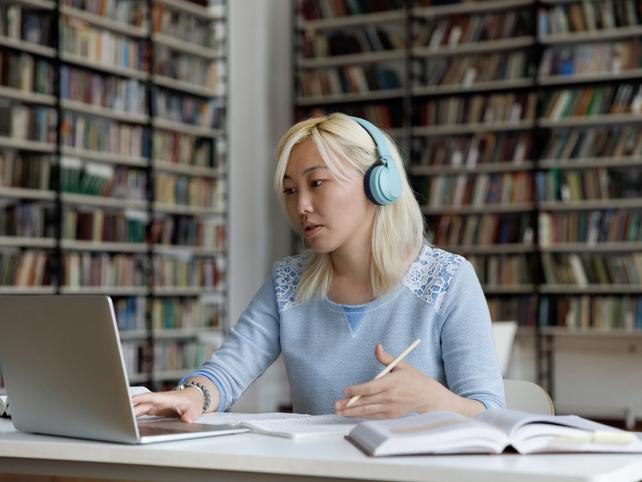Planning is key to fostering effective communication between student and supervisor during the dissertation supervision process. Positive interactions will give doctoral students confidence and a strong sense of independence. Each PhD student’s needs differ significantly, and it is incumbent upon the supervisor to design appropriate strategies from the outset. A vast array of articles offering enlightening and inspiring approaches for communication and thesis guidance are available online.
In this context, a few well-focused points for new PhD supervisors would seem beneficial. Adequate preparation is one of the keys to a fruitful supervision meeting with PhD students.
- Co-creation: how to find the ‘super’ in supervision
- Fostering freedom in PhD students: how supervisors can shape accessible paths for doctoral research
- Research supervision: working with the individual in front of you
Key elements to an effective PhD supervisory meeting
What, however, should an effective PhD thesis meeting include? Three primary elements come to mind. First, the student needs to clearly report their research progress. Second, the supervisor provides feedback, guidance and in-depth insight into the student’s most critical areas of need. Last, the focus for the next stage of research needs to be identified in order to continue the dissertation preparation process.
These three objectives can be further supplemented by following these suggestions during supervisory meetings with your PhD students.
1. Prepare in advance for themes or topics requiring discussion
Well before the meeting, encourage the student to email a tentative agenda or proposal to you. Ahead of the meeting, you, as the supervisor, read the email and identify which focal points require discussion. The student’s email should include at least two elements: (1) a summary of main research work progress accomplished to date; and (2) the complexities or hurdles encountered during the research phase (such as refining the research topic, theoretical considerations, data compilation, analysis methodology or writing process) that require further discussion with their supervisor. Writing the pre-meeting email is the student’s opportunity to organise and structure their thoughts, a task that is highly conducive to effective communication during the meeting.
2. Encourage students to proactively articulate their thoughts
At initial stages of doctoral study, students may not have a full spectrum of ideas to present. During this period, it would be natural for the supervisor to speak more frequently than the student during supervisory meetings. However, as research work progresses, students are expected to contribute more actively. Indeed, presentation skills are considered an integral professional component of doctoral-level training. To prompt interactive conversation, ask the student to prepare five to 10 PowerPoint slides to facilitate the exchange of ideas. As students encounter difficulty during their research process, they should be encouraged to think, reason and reflect independently, and to implement potential solutions before discussion with their supervisors. Online resources are plentiful for assisting doctoral students in preparation of efficient meetings with the supervisor.
3. Student note-taking and audio recording can be used to highlight key points
Notes and recordings can enable students to encapsulate meeting content in short form and will promote students’ ability to reflect meaningfully on the supervisor’s comments, reinforcing pivotal thoughts and concepts. Audio recording, with the supervisor’s consent, can allow the meeting to proceed at a natural pace without interruptions while students catch up with their note-taking. Using the recording after the meeting, students can organise key points. Brief summaries of content are helpful in ensuring that students properly grasp and retain important ideas, themes, concepts or approaches before embarking on the next stage of developing the dissertation.
Students should also email their meeting summaries to the supervisor for retention of records. If there are errors, these summaries will assist both parties in rectifying any discrepancies or inaccuracies. These summations can be used at subsequent meetings to verify whether the issues discussed have been satisfactorily resolved or if there remain any items that require adjustment or modification.
Use positive language during supervisory meetings
All stages of doctoral research come with inherent challenges. During meetings, the supervisor should strive to use positive verbal expression and body language throughout discussions. Cognitive theorists and educational psychologists have found that positive emotions can enhance concentration, focus, memory and problem-solving skills, while also enriching critical and creative thinking. Students who are emotionally stable and confident will be more deeply committed to their research.
On the other hand, those who are stressed or lacking in confidence are less likely to engage in effective dyadic communication and may harbour more doubts as to the viability of their ideas.
In my experience, amicable greetings, smiles and sincere encouragement are central to building a good supervisory relationship. A friendly supervisor can motivate and inspire doctoral students to innovate and move forward boldly, while enthusiastically communicating with their departmental peers.
Set and define challenging goals
Although students often have an overarching plan for their progress, supervisors can set even higher standards to be achieved gradually. Indeed, calm seas never make skilled sailors. Expectations and deadlines for completion of each stage need to be specified. Students should be made aware of the nature of high-quality research and should become familiar with the proper strategies and approaches to doctoral study. The scope and number of reading lists, the structure and length of literature reviews, and staged achievement goals must be discussed early in the supervisory process. In mid-phases of research, goals should be discussed and determined by the supervisor in conjunction with the student, inclusive of number of samples to be collected, experimental equipment or modalities, funding considerations and which journals to target.
Hold regular supervisory meetings to encourage students to think deeply and formulate solutions
Ideally, expectations should be made open and clear in regularly scheduled initial meetings, taking into account shifting realities, as necessary. Flexibility is permissible, although students should be encouraged to honour the deadlines set by the doctoral programme, ensuring their timely graduation.
Alice Ling Jiang is a professor in marketing at the School of Business at the Macau University of Science and Technology.
If you found this interesting and want advice and insight from academics and university staff delivered direct to your inbox each week, sign up for the THE Campus newsletter.




comment